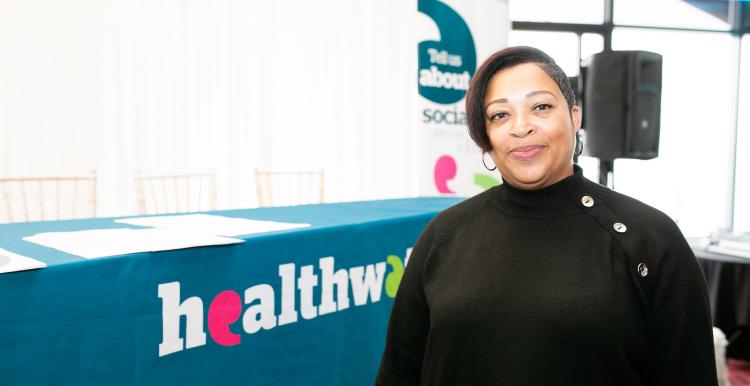Support and treatment for Long Covid

What is Long Covid?
To learn more about the symptoms of Long Covid visit our advice article which contains everything you need to know about this new condition.
Should I speak to my doctor about my symptoms?
If you are concerned about any of your symptoms contact your doctor. You can also speak to other healthcare professonials like community pharmacists.
If your doctor thinks you have Long Covid, they will look at your medical history and ask questions about your symptoms and the impact they are having on your day- to-day life.
They may also examine you and arrange for tests to be undertaken, such as blood tests, measuring your blood pressure, measuring your oxygen levels or a chest X-ray.
What support should I receive after I’ve seen my doctor?
After you have seen your doctor, they will talk to you about what they think is happening and discuss any support they think you need. They will also rule out any other conditions or illnesses that might be causing your symptoms.
Your doctor may give you advice about how to manage and monitor your symptoms at home.
If your symptoms are having a big impact on your life, you may be referred for:
- Support from primary care services, community services or mental health services.
- Specialist care.
If you need specialist care you may be referred to a Post COVID Service, where you’ll be looked after and supported by a range of health care professionals.
Do I need to attend a Post COVID Service?
Post COVID Services were launched in December 2020, bringing together a wide range of healthcare professionals including doctors, nurses, physiotherapists and occupational therapists.
The clinics offer physical, psychological and rehabilitation needs assessments, with the aim to bring a more holistic diagnostic approach and referral for long COVID treatment, management and support.
Referrals to the specialist services are made based on someone’s ongoing symptoms and the impact on their day-to-day life. They are not based on the severity of the initial illness, or a positive COVID-19 test.
Locally, Warrington and Halton Teaching Hospitals provide one of the dedicated Post COVID clinic. For more information on this, click the button below.
Your COVID Recovery
The NHS has also launched an online resource called ‘Your COVID Recovery’ which is available in two parts.
The first part of the platform is designed to offer advice and guidance to support your physical and emotional recovery if you have Long COVID symptoms. You will need to get a referral from your doctor to access this online resource .
The second part of the Your COVID Recovery resource can be accessed following referral from a Post COVID Service. Through this platform you can get advice and support from health care professionals on your mental health, physical activity, managing your symptoms and diet. You’ll also be able to track your symptoms and set goals.
Visit the Your COVID Recovery website
Other support available
The World Health Organisation has produced a helpful guide for managing your illness yourself. This includes advice on managing different symptoms, returning to work and a tracking diary to record your symptoms.
You might be able to get support for your symptoms from pharmacies and community groups.
Tell us your story
If you’ve had Long Covid, then help us improve services and support by telling us about your experience.
Tips for managing Long Covid symptoms
There are lots of small things you can do to manage your symptoms. Ensuring you get enough sleep, and eating a healthy balanced diet are two important ways to look after yourself.
It’s also important to conserve your energy. To make sure you don’t burn out before the end of the day try following the 3 P’s Principle – pace, plan and prioritise.
Pace
- Be kind to yourself and allow yourself to slow down.
- Break activities into smaller tasks and spread them out throughout the day.
- Stop when you get tired, don’t push yourself until you are exhausted – you’ll recover quicker this way.
- Build rests into your tasks and plan breaks between activities. Resting is key to recharging your energy.
Plan
- Look at the activities you need to do on a daily and weekly basis and spread them evenly across the week.
- Think about which activities are going to tire you out the most, and make sure these don’t happen on a busy day.
- Avoid planning activities at times of day when you are often more tired.
- Think about whether there are ways you can adapt tasks to make them easier – for example sitting down whilst doing the washing up or getting equipment to help you around the home.
Prioritise
- Some daily activities are necessary, but others aren’t. There might be some tasks you can stop, do less often or ask someone to help you with until you are feeling better.
- Make sure you do a balance of necessary tasks, like washing, but also the things you enjoy doing, such as walking the dog or meeting friends.
- Start the day by asking yourself:
- What do I need to do today and what do I want to do today?
- What can I put off until another day?
- What can I ask someone to help me with?


